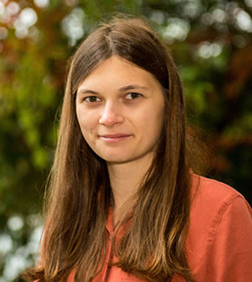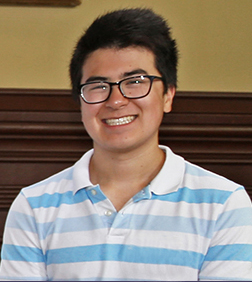
Brown School of Engineering Ph.D. student Kiara Lee (biomedical engineering) and recent graduates Helen Bergstrom ’15 (chemical engineering) and Reed Brown ’19 (mechanical engineering) were each recently awarded a three-year National Science Foundation (NSF) fellowship in the Graduate Research Fellowship Program. Additionally, Elliot Weiss ’17 (mechanical engineering) was named an honorable mention selection to the prestigious program. In all, 38 Brown graduate students and alumni in science, technology, engineering and mathematics fields were honored with tuition support and a stipend as promising young STEM leaders.
As the oldest graduate fellowship of its kind, the NSF GRFP helps ensure the vitality of the human resource base of science and engineering in the United States and reinforces its diversity. The program recognizes and supports outstanding graduate students in NSF-supported STEM disciplines who are pursuing research-based master’s and doctoral degrees at accredited United States institutions. NSF Fellows are anticipated to become knowledge experts who can contribute significantly to research, teaching, and innovations in science and engineering. These individuals are crucial to maintaining and advancing the nation’s technological infrastructure and national security as well as contributing to the economic well-being of society at large.
Lee is a member of the Tripathi Lab in the School of Engineering at Brown, and is in her second year of pursuing a Ph.D. in biomedical engineering. She is studying the creation of low-cost diagnostic tools that extract DNA and RNA from small volumes of patient samples. When DNA and RNA testing can be completed with tools on site, rather than being sent off to a lab, fewer resources are used and the volume and speed of testing can expand. This is especially relevant to today’s Covid-19 crisis, where initially most testing required processing by a remote lab and results took several days to obtain. Lee is a member of the National Society of Black Engineers and co-founder of the Graduate Students of Color in STEM at Brown. She also serves on the BME/Biotechnology program’s Graduate Student Board. In the fall, she will begin work toward her master’s in global public health. Lee graduated from the University of Pittsburgh in 2018 with her bachelor of science in bioengineering.

Bergstrom is currently pursuing a Ph.D. at the University of California at Berkeley working with Professor Bryan McCloskey. Her research focuses on understanding ion transport in electrolyte solutions for Li-ion and Li-metal batteries, with the goal of designing new electrolytes that enable faster charging and safer battery technology. Prior to Berkeley, Bergstrom spent three years as a research engineer at Saint-Gobain where she studied structure-property-processing relationships in fluoropolymers films and composites for applications in aerospace and food and pharmaceutical processing. While at Brown, she performed research on biofuel upgrading in Associate Professor Andrew Peterson’s lab and was the project engineer for Techstyle Haus – a Brown-RISD entry to the European Solar Decathlon sustainable housing competition.

Brown will continue his education next fall at Stanford University, where he plans to engage in research related to sustainable energy systems. While at Brown, he conducted research first with Assistant Professor Shreyas Mandre and later completed an honors thesis with Professor K.S. Kim. He was an active member of both the Engineering Departmental Undergraduate Group (ENGN DUG) and the engineering honor society Tau Beta Pi.
As an honorable mention award winner, Weiss is currently at Stanford University in the Dynamic Design Lab, a research group studying the motion and control of vehicles. His work centers on the interplay of human driving behavior and optimal control in the context of driver assistance systems.
The GRFP provides a yearly stipend, along with a $12,000 cost of education allowance for tuition and fees (paid to the institution), opportunities for international research and professional development, and offers the honoree the freedom to conduct their own research at any accredited U.S. institution of graduate education they choose.